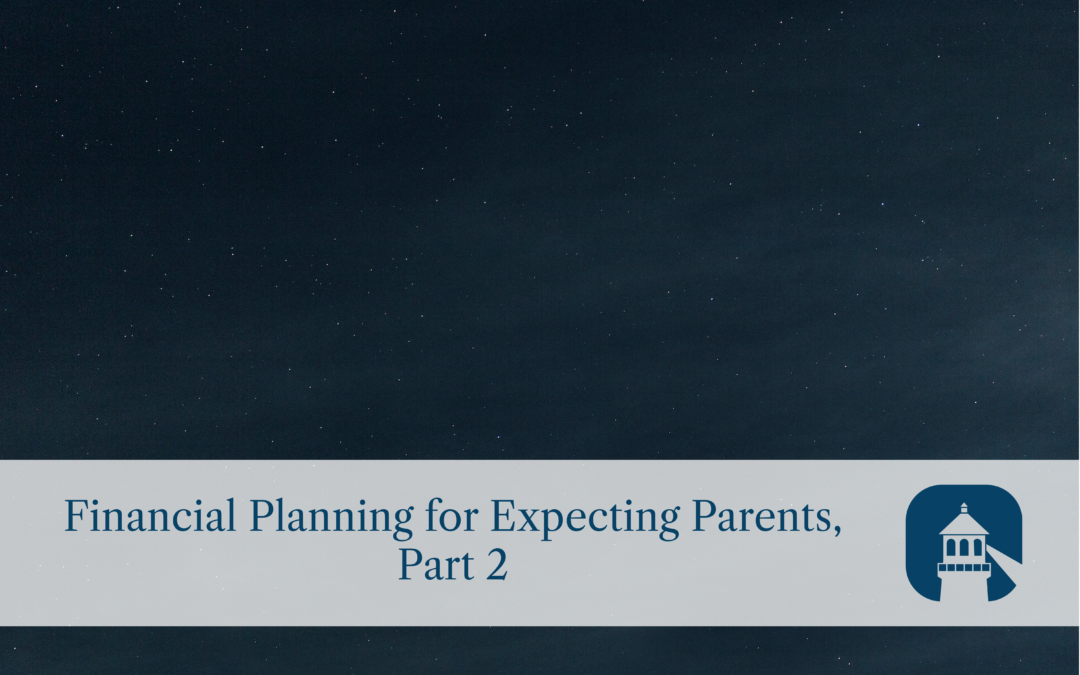Having a baby changes your life in so many ways, including how you manage your money. In the first post of this two-part series on financial planning for expecting parents, we covered the basics of parental leave, budgeting, and accounting for some of the “hidden” expenses of parenthood. (If you want a refresher, you can read Part One here.)
But an effective financial plan isn’t just about the minutiae of your budget. You also need to think about the long-term aspects of money management. In this post, we’re going to look at some of the bigger-picture financial aspects of parenthood.
Financial Consideration #1: Life Insurance
It might not be fun to think about, but life insurance is so incredibly important. Kids significantly increase your cost of living. And for most families, the financial consequences of losing one household income earner are devastating. A life insurance policy is a means to provide for your family after you’re gone.
While most parents understand the importance of life insurance, it’s harder to figure out how much coverage is necessary. Most people underestimate the amount of coverage they need.
When you’re purchasing life insurance, don’t just think about the immediate costs your beneficiaries will need to cover, such as your mortgage and funeral expenses. Make sure there’s enough money to cover living expenses for several months, if not years. And don’t forget, both parents should have their own life insurance coverage.
Financial Consideration #2: Long-Term Disability Insurance
In our previous post, we talked about the possibility of using your employer’s short-term disability benefits during parental leave. But it’s also a good idea to look at long-term disability policies.
As the name implies, long-term disability insurance helps replace some of your income if you are unable to work for a long period of time. This type of coverage provides your beneficiaries with a percentage of your salary in the event that an illness or injury prevents you from working.
Many people forget about long-term disability coverage or just ignore it. It’s easy to just think, “well, that will never happen to me.” And the odds are that it won’t. But if something unexpected does happen, the consequence will be easier to navigate if you have long-term disability insurance.
Financial Consideration #3: Estate Planning
Life insurance isn’t the only thing to consider when you’re planning for the unthinkable. You need a comprehensive estate plan, starting with a will.
Your will gives you the opportunity to identify your heirs and state how you want your assets divided among them. But it’s also where you can name the person who will have guardianship of your children should something happen to you and your spouse.
When you don’t have a will in place, it means that the court decides what happens to your money and your children. While this may work out completely fine, it can also be troublesome if you have family members you wouldn’t want raising your children.
Really look at the people in your life and decide who you would want to navigate any situations you might be leaving behind. And don’t forget to update your will as soon as your baby is born (and again if you have any additional children in the future).

The will is arguably the most important aspect of your estate plan, but it’s not the only one. It’s also a good idea to give a trusted person your power of attorney. A durable power of attorney form allows you to name someone to manage your finances if you are incapacitated. And a medical power of attorney lets you identify a person who can make healthcare decisions on your behalf if necessary.
Financial Consideration #4: Career Management
If you’re in your 20s, 30s, or 40s, the majority of your assets actually lie in your human capital — your ability to work. This is a really important piece of the conversation regarding your financial situation and having a baby.
Think about the best way to utilize that human capital. For example, if one partner has a high-powered career with longevity and high earning potential, it could be worthwhile for the other parent to stay home full-time, at least while the children are too young to attend school. If both partners have high-earning careers, it might be better to hire childcare and extra help around the house.
Just like everything else, this is an extremely personal decision for you and your family. And it can be a difficult conversation to have. But in the end, it’s all about weighing your options (and your partner’s) for earning potential, now and in the future. Then you can work together to make a plan that offers the most benefits to your family.
Get Expert Financial Advice to Prepare for Parenthood
Creating a comprehensive financial plan for your family requires you to understand both the small and big-picture elements of your money. You need to have a budget that covers all the day-to-day expenses during parental leave and after you get back to work. But it’s also crucial to think about some of your long-term financial goals, like estate planning.

The best way to make sure your finances are ready for a new baby is to work with an expert. Here at Guiding Wealth, we offer a one-time planning service that’s an affordable alternative to traditional financial planning. You’ll meet with an experienced planner, discuss your plans for your expanding family, and leave with a customized set of steps to get your finances in order. Sign up for your Baby Budgeting Plan today!


